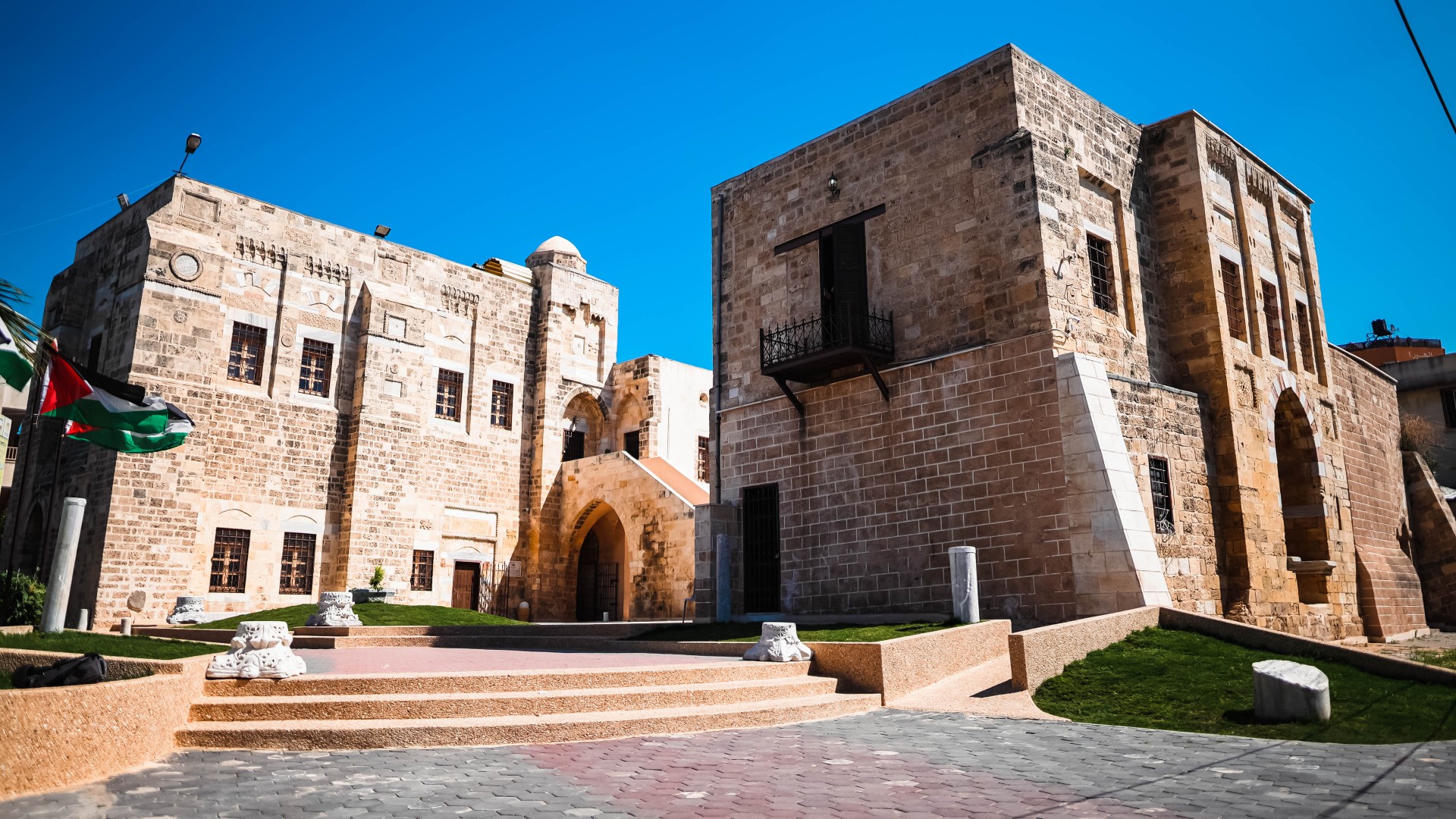The brutal genocide and massacres of Palestinians in Gaza and to a lesser degree in the West Bank which began on 7 October 2023 has dominated the news. In this article we explore certain aspects and insights into Gaza to gain a better appreciation of this land.
Gaza has a long and rich history.
It is not some uncivilised, backwater place. It was inhabited around 5,000years ago making it one of the oldest cities in the world. The name comes from Gazza which means fierce or strong, an apt name for the resilient people of the land. The Ancient Egyptians called in Ghazzat, a prized city, and the Muslim conquerors referred to it as Ghazzat Hashim in honour of the great grandfather of the Prophet sallallahu alaihi wa sallam who is buried in the city.
The Ancient Egyptians ruled over Gaza for 350 years. The Persians also had control of it at some point and it prospered. The Philistines, an ancient people of the area, conquered it in the12th century BC. The Hebrew Bible refers to it as the place where Samson was imprisoned by the Philistines and died. The Greeks under Alexander came next in the year 332. Gaza became a flourishing centre of Hellenistic teaching, philosophy, and Greek culture. The Roman period followed, and it became an important city in the region especially after the destruction of Jerusalem. Gaza’s Roman stadium was famed from Damascus to Alexandria.
In the year 250 Christianity finally reached Gaza. Jewish communities had also lived there from time to time. In fact, the myth of Muslims by default hating Jews is contrary to history. It was the Muslims who provided a refuge for Jews in Spain, and with its fall, in the Ottoman Empire. Gaza was no exception and Jews found a welcoming home in the city when Christian Europe was persecuting them.
In 638 Gaza was captured by the Muslim forces under Amr ibn al Aas radhiallahu anhu as the first city to come under Muslim rule in Palestine. The people largely accepted Islam and adopted the Arabic language. Gaza became a centre of Islamic learning. Imam Shafi rahimahullah was born in Gaza in 767. Even though his studies took him away never to return, he composed couplets showing his love for Gaza: I yearn for the land of Gaza. Given the opportunity, I would use its sand as an eye liner out of my love for the city.
The Crusaders came in 1100. All the while Gaza continued to be a prosperous city as witnessed by the traveler Idris in 1154. Salahuddeen rahimahullah liberates it for Islam in 1187. There comes a period where Gaza goes through many types of tests. In 1260 the Mongols destroy it. The Mamluks rebuild it with Sultan Baibars endowing the library with 20,000 manuscripts in the 13th century. In 1294 an earthquake strikes the city, in 1299 the Mongols return and destroy it once again. Yet Al Dimishqi in 1300 describes it as a beautiful city rich in trees such that it looks like a cloth of brocade laid out. In 1342 the Bubonic Plague killed most of the inhabitants. In 1355 the traveler Ibn Battuta describes it as a large populous city with many Masjids.
The Mamluk rulers had built Masjids, colleges, hospitals and public baths. They allowed the Jews to return after the Crusaders had expelled them. The Jews prospered under Muslim rule becoming the 3rd largest Jewish community in Palestine. Jews lived as citizens under Muslim rule and were welcomed in they Muslim state. An Italian Jewish traveler spoke glowingly of the fruits of the city. Gaza bounced back from all the setbacks thrown at it, a quality we see today in the resilience and heroism of the Palestinians.
In 1516 the Ottomans gained control. Under them, during the Ridwan Period, Gaza enjoyed a golden age becoming the virtual capital of Palestine. By the early 19th century, it even had a bigger population than Jerusalem. 1799 saw Napolean and his French troops arrive. They capture Gaza and expel the Jews. Again, it was the Christians and not the Muslims who persecuted the Jews. In 1839 the Bubonic Plague arrived once again.
In 1917 the British capture Gaza and the colonial period begins, first under the British, then under the Zionist Israelis. In 1948 Gaza was occupied by Egypt until it was captured by the Israelis in 1967.
The first Intifada or Palestinian uprising took place in 1987. Israel eventually withdrew all its troops and settlers from Gaza in 2005. In 2006 the Palestinian resistance movement Hamas won victory in elections and have controlled Gaza since then. Gaza faced continuous Israeli attacks in 2008, 2012, 2014 and now in 2023/2024.
What was Gaza before the latest round of attacks? Over 90% of kids over the age of 10 are literate with over140,000 were enrolled in schools. In 2006 there were 210 schools, and over20,000 students enrolled in four universities. The public library had 10,000books.
What is the Zionist and Jewish stance on Gaza?
According to Jewish law Gaza belongs to Biblical Israel or the so-called promised land. Rabbi Jacobs stated the obligation of Jews to live in Gaza and an Israeli Prime Minister reiterated this view. Ilan Pappe, the Israeli historian in his book, The Biggest Prison on Earth, shows quite clearly that the Israeli government and public covet the West Bank and Gaza. In Gaza they are trying their level best to remove and expel the non-Jewish population as they did from the 1930’s in the rest of Palestine and as they continue to do so today. Those who lived under South African Apartheid will recall the inhumane homeland system which is the mild form of the colonialism being practiced by Israel today in occupied Palestine.
In the West Bank, they started by bringing in illegal settlers, taking Palestinian land and dividing the communities with high fences and humiliating check points. The people of the West Bank actually regard Gaza as freer when compared to the indignities they have to endure. In the recent 2023/24 Israeli onslaught, the Palestinians in the West Bank are confined to their homes for days on end, with armed soldiers enforcing the curfew.
In Jerusalem, in the Muslim area of Mamilla, the Israelis desecrated a Muslim cemetery going back to the 7thcentury and removed the graves at night so no one could witness it. They then surrounded the area with and electric fence to prevent Muslims from entering.
The human suffering and humiliating indignities the Palestinians have been facing since the founding of colonial Israel can fill volumes. Suffice to say that the current war didnot start on 7 October 2023. It started with the Israeli Zionist terrorist gangs in the 1920’s and 1930’s.
The Israeli settler neighbourhoods are considered war crimes under international law. The Rome Statute of the International Criminal Court of 1998 defines the transfer by the occupying power of its population into territories it occupies as indictable war crimes. These blatant violations of international law are a hallmark of the Israeli state since its inception.
Acquiring land by force after hostilities have ended is illegal. In this regard, Israel has violated the 2ndArticle of the United Nations 1945 Charter. Settlements built on occupied land is a violation of the 4th Geneva Convention Article 19(6)(1949).
Even the most liberal Israelis consider the illegally occupied Palestinian territories as non-negotiable. At the end of the day, Israel effectively only considers 10% of Palestinian land as possible territory for Palestinian rule, and much of that is divided by settler areas and military bases. The United Nations and other international bodies are largely colonial bodies structured on rules designed to keep the former colonial rulers effectively in power.
Why have the Palestinians taken up armed resistance?
Acknowledgement needs to be made of the South African government’s stance on the Israeli genocide. They have not given into western pressure and designated Hamas, the Palestinian resistance movement, as terrorists. We know full well that the West’s definition of what constitutes terrorism is flawed. They called the ANC and Nelson Mandela terrorists. The South African government has taken Israel to the International Court of Justice on charges of genocide while having all to lose in the international arena.
While the western controlled media makes much mention of the Israeli hostages, it bears remembering that 700 Palestinian kids under the age of 18 from occupied West bank are prosecuted annually by Israeli military courts after being arrested, interrogated, and detained by the Israeli army. Throwing a stone is punishable by up to 20 years in prison. Since 2000, more than 12,000 Palestinian children have been detained by Israel. Who is the criminal here?
Together with killing to date (January 2024) over 10,000 kids in Gaza, the Israelis have arrested more than200 children since 7 October 2024.
Over the last 50 years, more than10,000 Palestinian women have been arrested or detained by the Israeli military. Is it then any wonder that the Palestinians are fighting back for their land, lives and dignity?
Hamas has Islamic principles as its ethos. Its armed wing, the Al Qassam Brigades, is named after Izzuddeen Abdul Qadir Al Qassam who led the resistance to Zionist and British terrorism and colonialism in the 1920’s and 1930’s. Al Qassam has a battalion called the Battalion of Huffaz, an elite fighting force all of whom are Huffaaz of the Noble Quran, are punctual on reading their Salaah in congregation, performing Tahajjud, etc.
What is the Islamic view of Gaza?
The Hadith of Tabrani states. “It is your duty to engage in Jihad. The best of your Jihad is in Ribaat (guarding the borders) and the best of your Ribaat is at Asqalan (Ashkelon in occupied Palestine).” The early Muslims would use Asqalan interchangeably with Gaza.
The people standing firm on resistance are the select slaves of Allah Ta’ala in His selected land (Palestine). (Tabrani) They are carrying out a heroic resistance which a superior army aided by other forces and armed with multi billion dollars’ worth of cutting-edge military hardware is finding it incredibly difficult to defeat.
What lessons can we take from this war?
- “Do not lose heart or grieve, for you will have the upper hand, if you are true believers.” (Noble Quran 3:139) Allah Ta’ala has wisdom in how His plan will play out. The Israelites said to Musa alaihis salaam, on seeing the continued oppression, “We were persecuted before you came to us and after you have come to us.” He said, “Perhaps your Lord will destroy your enemy and make you rulers in the land, and then see how you will act.” (Noble Quran7:129) Musa alaihis salaam told them that true liberation, and not an immediate, short-term relief, would come after a period of extended persecution. The suffering of the Palestinians and their losses could well be components contributing towards the total liberation of Palestine, not just an undignified, humiliating cessation of hostilities.
- Despite the western propaganda and official government stances, the people on the ground have largely come out in support of Palestine. Many American youth have taken to studying the Noble Quran to try and understand the faith that is driving the Palestinians. They are largely pro-Palestinian prompting calls by some US politicians to call for a ban on Tik Tok blaming it for indoctrinating the youth. The rates of people in western countries like Australia and the UK have increased with many citing the war on Palestine as a contributing factor.
- Appreciate the stance of our government. The government of South Africa has taken a pro-Palestinian stance that most Muslims countries have failed to take, despite having everything to lose. Sahaba radhiallahu anhum appreciated the refuge provided by the Christian king Negus of Abyssinia. Observe the political parties supporting Israel and its genocide and be guided on who to vote for in elections.
Palestine will be the setting for decisive battles close to Qiyamah.
Dajjal will ultimately meet his end at Lodin Palestine. We need to continue with awareness of the suffering of the Palestinians, campaigning and Dua for we do not know what effect these could have on the ultimate outcome. Economic boycotts are permissible and can be effective especially if done on a governmental level. Do not let a pro boycott stance let you look done on anyone else who has not made your choice.
Be informed.
Read the history of Israeli terrorism in Palestine in the works of the Israeli historian Ilan Pappe and others to read beyond the mass media narrative, as well as the impact Palestine has had on bringing people to Islam such as the biography of Lauren Booth, Finding Peace in the Holy Land.








COMMENTS